Covid: More antidepressants prescribed but therapy down
- Published
Covid has 'accelerated' anti-depressant use
Antidepressants should not be used as a "sticking plaster", a charity has warned, after prescription numbers "accelerated" during the pandemic.
While use of the drugs has increased, the number of people referred to talking therapies is down, official figures showed.
Mind Cymru said antidepressants could be helpful for short periods but failed to address any long-term issues.
The Welsh Government said it was investing in mental health support.
More than 3.2 million antidepressant items were prescribed by GPs in Wales in the six months after the Covid pandemic started - an increase of 115,660 compared to the previous year.
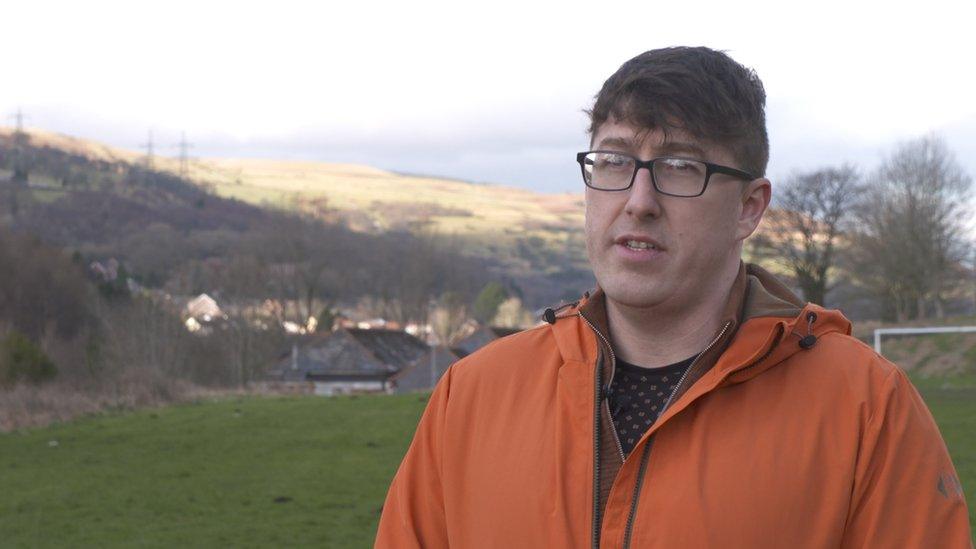
Luke Jones says he was prescribed antidepressants, but with no thought to after-care
But in the same period the number of people referred for talking therapies fell, external by a third to 25,520, the figures showed.
The number of antidepressants prescribed has been increasing during the last 20 years, external and GP prescribing data, external analysed by BBC's Wales Live showed that trend has continued.
Father-of-two Luke Jones, 33, from Merthyr Tydfil, had previously been put on antidepressants after being diagnosed with clinical depression.
When he started to struggle during the first lockdown he said his dosage was increased by the GP after a short phone call. The same thing happened when he called again in November.
"There was no trying to find out 'well why are you feeling like this?'. There was no thought to after-care either," Mr Jones, a student support worker, said.
"I think medication is just your foot in the door, really, or your first rung in the ladder to getting support. I would definitely have wanted to be offered talking therapies."
Aneurin Bevan University Health Board said it was "sorry" to hear of Mr Jones' experiences and a range of non-pharmacological interventions are available for patients.
Sara Moseley, director of Mind Cymru, said: "Antidepressants themselves can be helpful for short periods of time.
"But just prescribing antidepressants or only prescribing antidepressants is absolutely not the right thing to do. We know that there are so many other things that help and support people.
"I think that very often antidepressants are used as a sticking plaster to alleviate distress in the short term but what they fail to do is to get to the bottom of sustainably, for the rest of that person's life, how do we deal with this person's issues?"
She said people were "having to wait" if they were referred and there were "barriers" to accessing talking therapies which were "limited".
"We'd like to see rapid access to advice, support and early intervention and talking therapies and we'd like to see that in communities the length and breadth of Wales," she said.
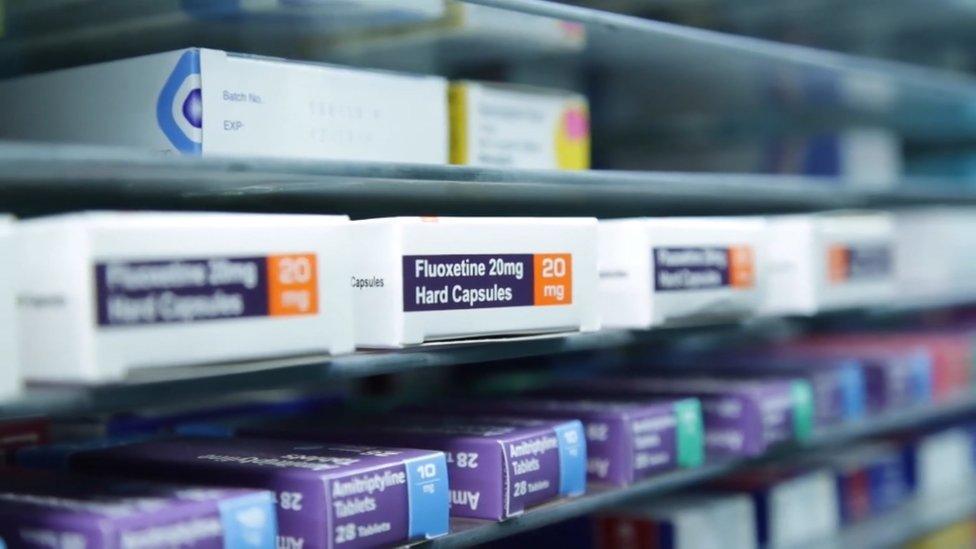
Mind Cymru says prescribing only antidepressants is not the right thing to do
In England, people can refer themselves through the NHS's Improving Access to Psychological Therapies service.
But in Wales, services like counselling can only be accessed through the NHS with a referral from a GP.
Nearly 4,000 people have signed up to a six-week programme, Active Monitoring, launched by Mind Cymru last summer with Welsh Government funding.
Through it, people worried about their mental health can self-refer for a weekly phone counselling session and access other resources, but funding is due to end in March and referrals close this week.
Nursery assistant Gemma Crocker, 37, from Cardiff, signed up last year when she started having panic attacks. She was also prescribed antidepressants by her GP.
She said: "The minute I started talking to the counsellor there was these little waves of relief, little bits started to fall off and I started to understand what was actually going on."
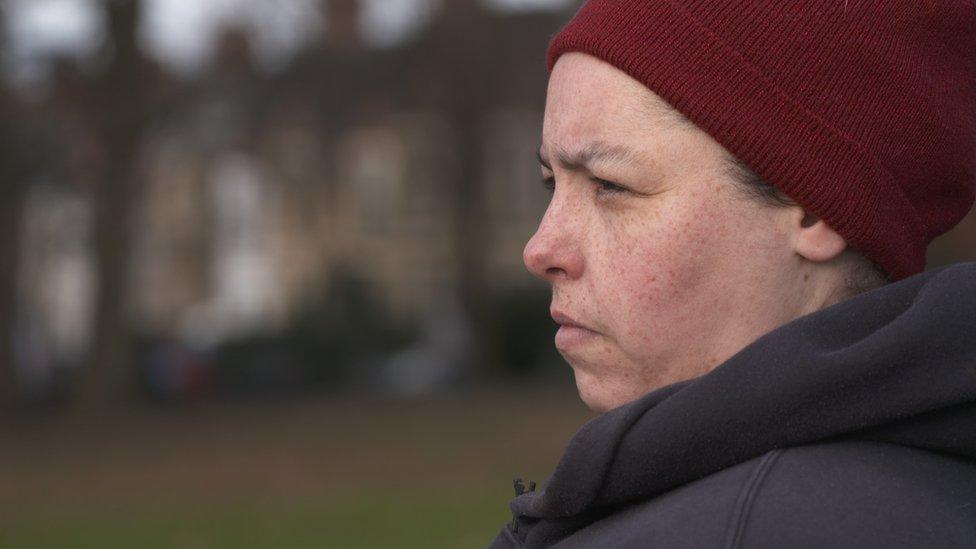
Gemma Crocker says talking therapy helped her, alongside antidepressants
"I needed to be able to talk to someone who didn't know a lot about me and I needed the medication to bring me back - that's just the two. I could have tried one without the other but I don't know where I would have gone."
Dr Peter Saul, a GP in Wrexham and joint chair of the Royal College of GPs in Wales, said: "We're seeing increasing numbers of patients with mental health issues as the pandemic itself has increased stresses and worries.
"The easy option is to give some medical treatment - an antidepressant or possibly something to help with anxiety. If we were in a more normal time we would be having a more balanced discussion with that patient to discuss what they wanted and what was available."
He called for a dedicated mental health worker for each GP practice in Wales to help balance talking therapies, self-help measures with anti-depressants.
A Welsh Government spokesman said mental health support had been essential during the pandemic and it was working closely with partners to respond to changing needs.
"We have also invested almost £10m to provide support for low level mental health issues and to prevent the need to access more specialist services," he said.
"Responding to the mental impact of the pandemic requires a multi-faceted and multi-agency approach and we are committed to work with partners to do this."
More on this story on Wales Live, BBC One Wales, at 22:35 GMT on Wednesday

WINTER LOCKDOWN GETTING YOU DOWN? : 6 Top tips for looking after your mental health
TRY SOME NEW RELAXATION TECHNIQUES: What is mindfulness and how can you achieve it?

- Published17 January 2021
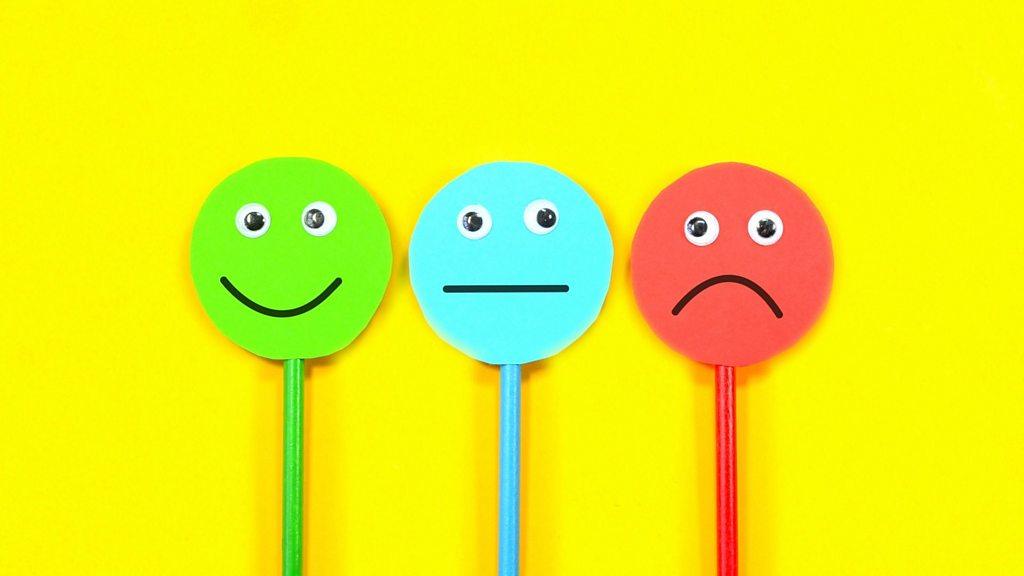
- Published30 May 2019

- Published20 January 2021
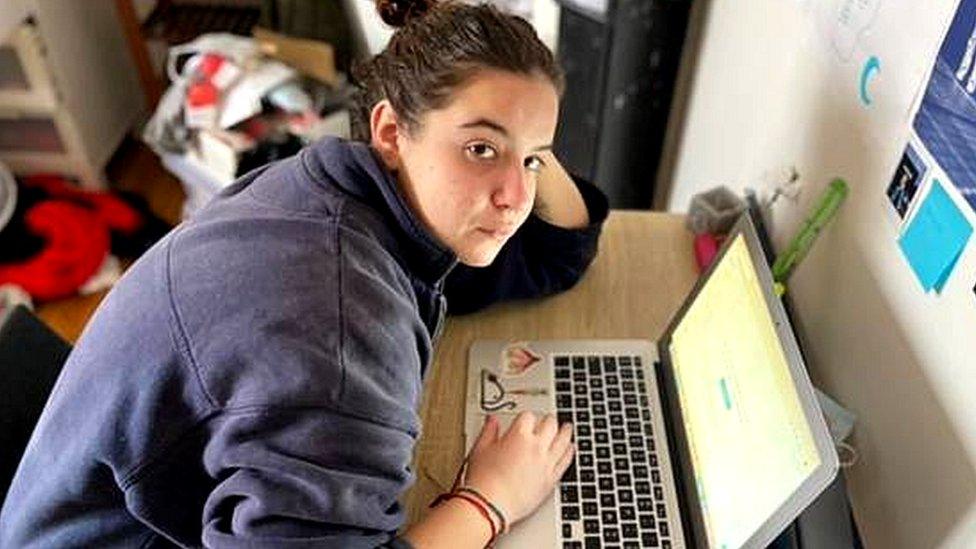
- Published12 February 2021
